Content
- Definition and terms
- History
- What diseases does it treat
- Common diseases
- Compression of the roots of the spinal cord
- Circulatory problems
- Tumors
- Arthritis
- Internal inflammation
- Disorders associated with brain pathologies
- The consequences of psycho-emotional stress
- Congenital neuropathies
- Other violations
- What other symptoms should you treat?
- How is the inspection
- Video about a neurologist
The nervous system contains 90 billion. complex cells called neurons that are involved in every human action: development, movement, thinking. Neural network damage lead to malfunctions of other organs, often long and painful. The patient is appointed for an appointment sometimes to a neurologist, sometimes to a neurologist, but what is the difference in the treatment of these doctors is not explained to the patient.
Definition and terms
A neurologist is a graduate of a higher medical educational institution, who received a diploma and a certificate of professional training in the specialty "neurology". Its activity is to diagnose and treat diseases of the central nervous system, autonomic nervous system. The neurologist is engaged in the restoration of body functions, rehabilitation of the patient.
In the compound word "neuropathology" the second part of the root comes from the Greek "pathos" - disease. This is a branch of medicine that examines the pathology of nerve pathways, tissues and their effect on organs. A neuropathologist is a specialist who studies deviations of the nervous system from the norm.
In the 80s of the twentieth century, the USSR Ministry of Health abolished the term "neuropathologist" in order to avoid looking for a difference in specialization. One official name for a physician specializing in nervous diseases was approved - a neurologist. Part of the research functions were transferred to neurohistologists.
History
The work of the brain has been of interest to healers since antiquity. The first description of a neurological disorder was found in a papyrus from 3300 BC. The scientific profile discipline began to develop since the 19th century. The Spaniard Ramon y Cajal defined the neuron as a unit of nervous tissue, studied the organization of cells in different areas of the brain. In 1906, the researcher received the Nobel Prize for his work.
In Russia, the impetus for the development of neurology was given by A. I. Kozhevnikov, who in 1869 opened the Faculty of Nervous Diseases at Moscow State University and established a clinical base at the Novo-Ekaterininskaya Hospital. The professor published a textbook, organized the Moscow Society of Neuropathologists and Psychiatrists.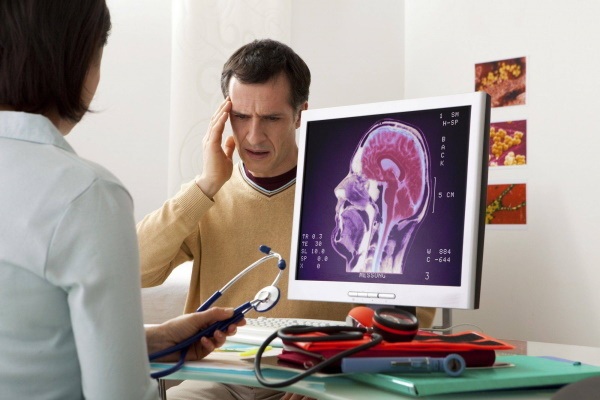
The founder of the Petersburg school was V. M. Bekhterev, who wrote seven volumes on neurophysiology, created the first Russian neurosurgical unit. Scientific studies of the nervous system are associated with the names of Sechenov, Pavlov, Vvedensky.
The difference between a neurologist and a neuropathologist can be illustrated by the difference between the Moscow and St. Petersburg schools. Department of Kozhevnikov at Moscow State University was engaged in special pathology, morphological studies of tissues. The neuropsychiatric institute of Bekhterev paid more attention to the diagnosis and somatics of diseases, the connection between the brain and the psyche.
What diseases does it treat
A neurologist or neuropathologist (there is no difference at the moment) provides medical care for many diseases - from migraines to multiple sclerosis. A third of visits are associated with back pain, sciatica, dizziness.
The doctor administers newborns, deals with cognitive impairments in children. There are narrow-profile specialists who help with hereditary pathologies, damage to the nerve endings of the eyes, hearing organs. A neurologist provides consultations for mental disorders, together with a psychotherapist, he fights against Alzheimer's disease.
Common diseases
This is a group of pathologies that affects the entire body.
Compression of the roots of the spinal cord
Violations are accompanied by pains not only in the back, but also in other organs, which are innervated by pinched endings of neurons.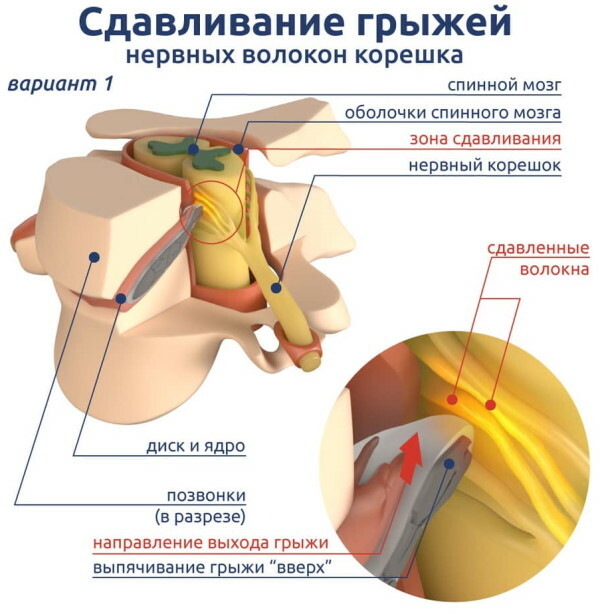
Causes of the disease:
- herniated discs;
- trauma;
- degenerative changes in the vertebrae;
- protrusion.
The defeat of the cervical spine is manifested by vestibular disorders, headache, and muscle weakness in the legs is explained by pinching of the roots of the lumbar spine.
Circulatory problems
Tinnitus and migraine are the result of atherosclerosis, arteritis of large vessels. In severe cases, inflammation of the arteries, aneurysms lead to hypertensive crises, strokes.
Tumors
The pain syndrome associated with the pressure of the neoplasm on the internal organs also belongs to the competence of the neurologist. An experienced doctor will distinguish osteochondrosis from oncology and will refer you to the right specialist.
Arthritis
Deviations of water-salt metabolism are detrimental to cartilage and bones. Degenerative changes in the joints are accompanied by fever, pain, weakness. Having established the diagnosis, the neurologist continues to treat the patient together with the surgeon.
Internal inflammation
Neurological disorders are always associated with chronic diseases. With cirrhosis of the liver, attention is disturbed, tremor worries. Diabetes mellitus, thyrotoxicosis affect the peripheral nervous system, cause neuropathic inflammation of small vessels. Hypothyroidism causes fatigue and memory problems.
A neurologist or neuropathologist (the difference in the name of the doctor does not matter for patients) provides assistance in relieving pain, symptoms related to the nervous system. Further treatment of the underlying disease is carried out by a therapist or a narrow specialist.
Disorders associated with brain pathologies
Stroke, Parkinson's and Alzheimer's diseases differ in symptoms, lesions, but are united by a destructive effect on brain cells.
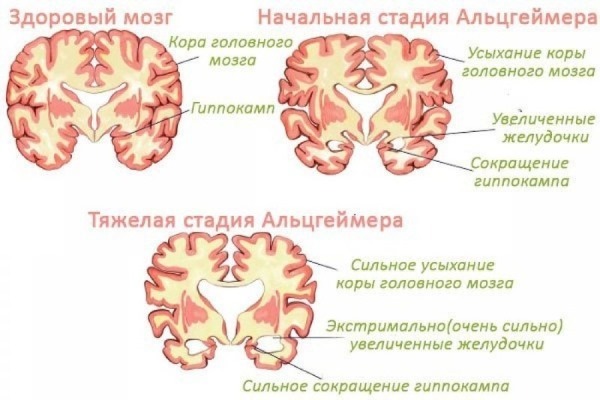
The doctor prescribes therapy regimens, determines post-stroke patients for rehabilitation. Medication slows down unwanted processes. Children's neurologist deals with organic brain lesions in children - epilepsy, cerebral palsy, hydrocephalus.
The consequences of psycho-emotional stress
Constant stress triggers a cascade of diseases: hypertension, asthma, eczema.
Common symptoms caused by nerves:
- insomnia or drowsiness;
- cardiac arrhythmias;
- fears, anxieties;
- resentment, tearfulness;
- weight gain or loss.
Frequent repetition of nervous overstrain leads to the formation of chronic psychosomatic disorders.
Congenital neuropathies
Long-term studies have proven a genetic predisposition to epilepsy and multiple sclerosis.
Other congenital neurological diseases: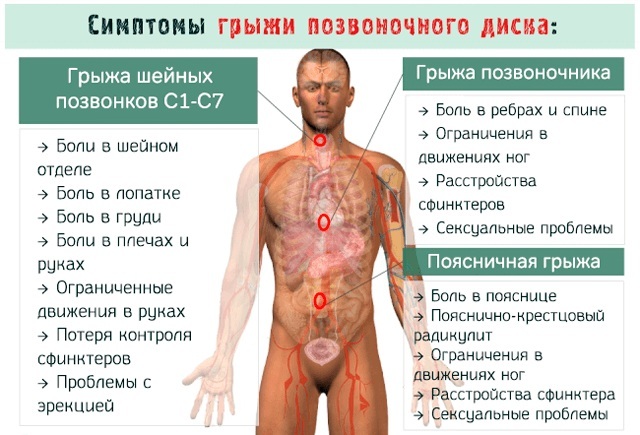
| Disease | Cause |
| Spinal hernia | Intrauterine growth defect |
| Wilson-Kovalev disease | Copper metabolism disorders |
| Neurofibromatosis | Genetic mutation with the formation of neuromas |
| Walker-Dandy Syndrome | Congenital malformation of the cerebellum |
| Cruson syndrome | Deformity of the skull due to early closure of the fontanelle |
| Syringomyelia | Cavity in the spinal cord and brain |
| Leukodystrophy | Deficiency of white matter in the brain |
A pediatric neurologist or neurosurgeon who deals with malformations of the brain and spinal cord will help with these diagnoses.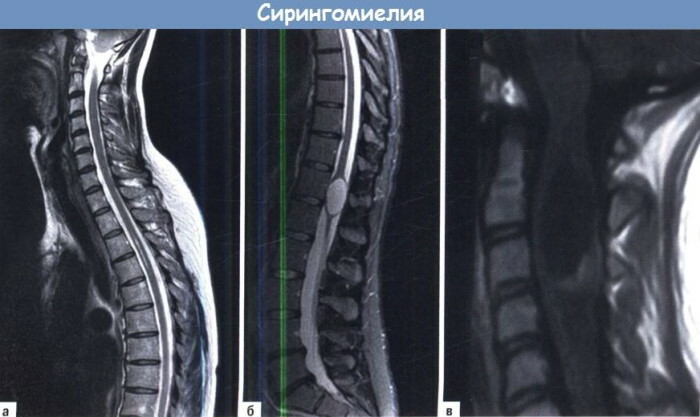
Statistics provide information on different outcomes of perinatal CNS lesions: cure, residual functional impairment, disability. The result depends on the severity of the disease, early access to a doctor, and the effectiveness of treatment.
Other violations
After a serious illness, fainting, convulsions, coordination disorders related to nervous diseases sometimes appear. Panic attacks, phobias are the area of research not only for a psychiatrist, but also for a neurologist. The cause of urinary incontinence is narrowing of the spinal canal or incipient dementia. Specialist consultation is also necessary in this case.
What other symptoms should you treat?
Self-medication for neurological disorders is unacceptable.
An appointment with a specialist is recorded when:
- burning pains with numbness and loss of sensation;
- stiffness of movements, impaired coordination, speech;
- partial loss of vision, tinnitus;
- frequent light-headedness.
Ignoring the signs leads to undesirable consequences, the progression of the disease.
How is the inspection
A neurologist or a neuropathologist (the difference existed in the USSR), the initial appointment begins with a conversation. The patient tells the doctor about the indisposition, concomitant chronic diseases, previous examinations. Then the neurologist examines the patient: evaluates physical activity, posture, and checks reflexes.
The examination ends with a preliminary diagnosis, a decision to start treatment or additional research.
The main diagnostic methods:
- CT, MRI, PET;
- Doppler scanning;
- echoencelography, radiography;
- Spine ultrasound;
- lumbar puncture.
At the second and subsequent visits, the final diagnosis is established, and the treatment regimen is determined. The neurologist appoints the patient a frequency of visits for further observation.
Postponement of a visit to a specialist, attempts to cope with neurological symptoms on their own translate the disease into an incurable form. Timely referral to a neurologist, according to the old terminology - to a neuropathologist, will make you feel the difference between self-medication and a professional approach to the problem.
Video about a neurologist
What is the difference between a neurologist and a neuropathologist:
